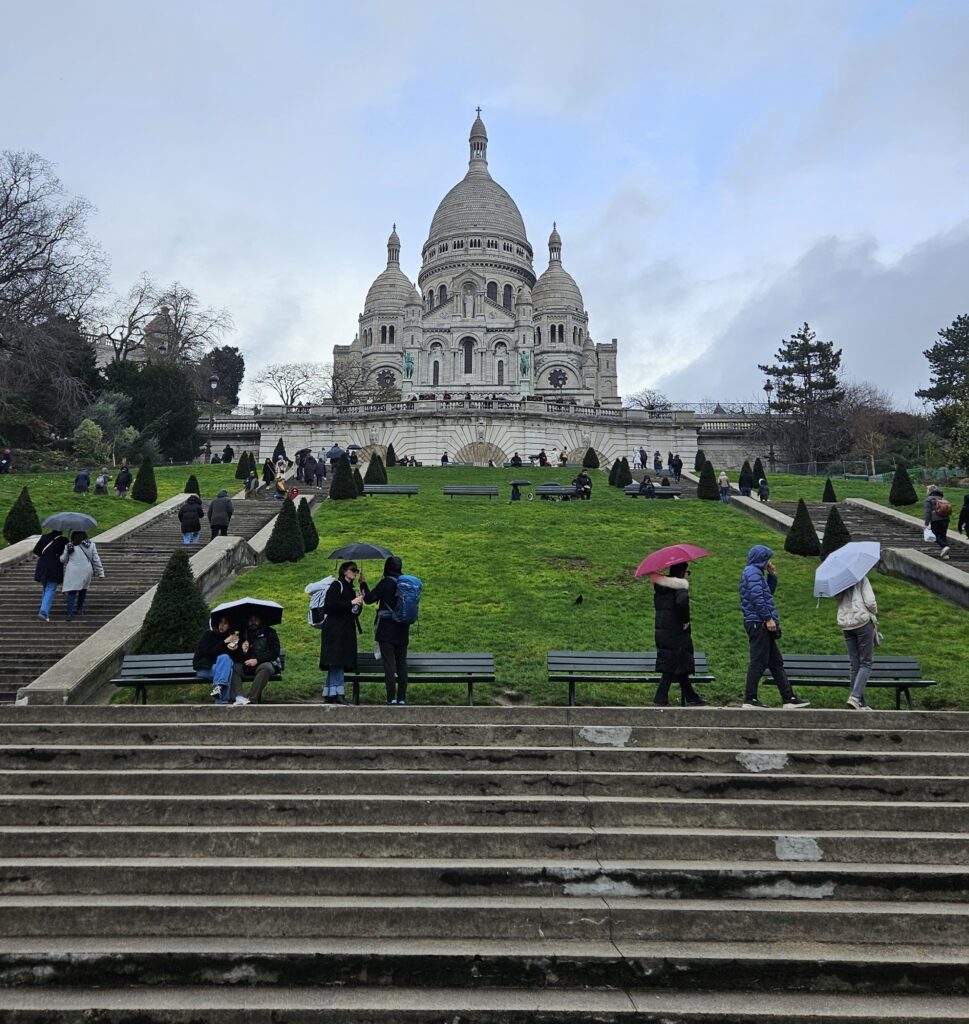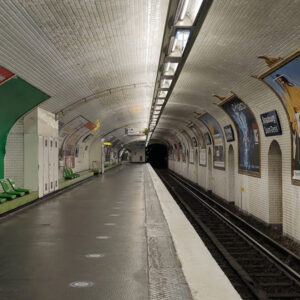Scams to avoid when visiting Paris

Being in the City of Lights can be an awe-inspiring moment for anyone, I still have to pinch myself at times that I actually live here. But as beautiful and inspiring as Paris can be, there are things that you need to be aware of and that’s scams to avoid when visiting Paris.
Scams can be disguised as something as innocent as someone trying to offer help (metro ticket scam) or as simple as getting a taxi at the airport. There are things that you need to be aware of before setting out on your Parisian adventure.
Taxi at the airport
The scams start the minute you step off the plane, at the airport. If you were planning on winging it when you got in, that’s completely fine. There are plenty of way to get from the airport into Paris, just depends on how adventurous you’re wanting to be. If you’re in no rush, you have the public transportation (bus or RER) that can get you into the city center just fine.
But a lot of people (myself included) opt for the taxi option from the airport. There are specific, dedicated taxi bays at Roissy CDG airport once you’ve exited baggage claim. You’ll need to follow the signs posted to the nearest taxi bay. If someone stops you inside the airport and asks you for a taxi, just say no and keep walking. A legal taxi driver will never approach you for a ride. Taxi fares from the airport to different areas of the city are regulated by the government. These people that approach you in the airport will charge you an exorbitant fee and most likely only take cash.
(more coming all about taking taxis from the airport…stay tuned)
Metro Tickets
You’ll always want to make sure you buy your metro tickets either from a ticket window with an RATP agent or an automatic distributer, usually located near a ticket window. Never buy a ticket from someone that approaches you before or in the metro. Even if they are dressed as an RATP agent, agents will never approach you to purchase tickets. If you purchase a ticket from these people, you will most likely be sold a ticket that is either a reduced fare or child’s rate, but will be charged the full price (or more) of a regular ticket. There are check points that are randomly set up through the metro system that are not scheduled (on a regular basis) and are more pop-up. These are run by actual RATP agents and they will check the validation of your ticket. If you are found with the wrong one or not a ticket at all, you will be fined.
Cardboard tickets are currently being faded out of circulation and RATP is moving to a single card (the size of a credit card) for all transportation ticket purposes. Something to keep in mind, for most tourists, you will not be able to buy a discounted ticket as you will need proof to substantiate the discounted price. Also, if you have kids, make sure you know the age limit for kids that ride free and kids that need a ticket. You can read more about how to navigate the Paris metro system below.
Navigating the Paris Metro
Friendship bracelet
This scam is most notably found on the stairs leading to Sacré Coeur in Montmartre. Typically men will be hanging around the steps up to the church with colorful threads and offer to make you a friendship bracelet (they won’t say for free, but will brush it off if you ask). They are pretty insisting about it and mostly target the females or children. Do not let them put the thread on your wrist as once they start, they’ll expect you to pay at the end and they are very persistent. It is best to wave no, say non, merci and keep walking, this is the best way to avoid them. If they keep at it, keep repeating non and keep moving. They’ll eventually get the hint.
Signing a petition
These women can be seen throughout the city, Tuileries garden, Pont des Arts, hanging around metro exits. They appear mute and shove a cardboard clipboard in your face and point to sign the paper. The first thing to look out for is if they are wearing the same vest with the indicated organization they are associated with as well as a badge around their neck. If these two items are not present, keep walking. These women are wanting you to sign and then they’ll insist (usually aggressively) that you pay a donation. This is just a way to get money out of you.
You may see groups around town that are wearing matching vests and all have badges. They’ll typically come up to you and ask you if you have a moment to talk. These are legit organizations (typically Amnesty International, the Red Cross, WWF, etc) that have the right to be in that area asking for support.
Three cups and a ball
This scam can be seen throughout the city, typically in crowded places (Trocadero, Eiffel tower, Tuileries garden, Montmartre) and involves multiple people. There are spotters that keep an eye on the crowd to make sure there are no police coming as well as people placed near the person dealing the game. These people act as betters as well as spotters and make sure the game keeps going. You basically bet on where the ball is going to land as the dealer moves the three cups around on a make-shift table. The idea is to bet more to win the pot. You will loose if you play and the only people that win are those working with the dealer. It is best to just keep moving and not get involved even if you are asked to play.
Lost gold ring
This can happen anywhere, someone pretends to picks up something near you off the ground and asks if you dropped it, showing you a gold ring. If you say no, they will insist that it is valuable and try to sell it to you. This can be a two-fold play. They can use this ploy as a way to get you distracted and someone else will come in and try to pick off you or they will just try to sell you the piece that has no value really. Common sense is never to buy jewelry off some person on the street.
The rose
Typically you’ll see a gentleman with a large bouquet of individual roses walking around “offering” them to the ladies in a couple or group in touristy areas as well as on certain patios in certain areas of the city when the weather is nice. If you take the rose, you or the person you are with be asked to pay and sometimes in an agressive and unwanted manner. Even once you realize you’ll need to pay and you try to return the rose, they will not accept it and you’ll still be expected to pay. You can simply avoid paying for a flower that originally seemed like a gift by simply declining it from the beginning and being firm in your response.
Pickpockets (in general)
Not really a scam, but something to be aware of. Pickpockets are abundant in crowded areas, on public transportation, and can even be found in museums. It is best to be aware of your possessions when out in public. These pickpockets are professionals and they are very good at what they do. They rarely work by themselves and are usually in groups. They range from young to old, all shapes and sizes.
- Don’t keep your wallet or phone in your back pocket, your side pocket (or jacket pocket), or in an outside pocket of your bag. These are easy targets for pickpockets.
- If you have a backpack or bag, keep it close to your body. If you are on public transportation, it is good practice to remove your backpack and hold it in your hand (you’re making more room for people, especially during rush hour).
- Be mindful of your space, especially in crowded places. These are when pickpockets tend to strike as there is so much going on and you can be easily distracted.
- Never leave your bags unattended, always keep them with you wherever you go. This also goes for personal items, particularly cellphones. Don’t keep them on the table, they are easily swiped when not looking. Be mindful of your bags when out to eat as well, especially on a patio.
- Be wary of strangers that seem a bit too friendly or inquisitive. They may seem like they need help or are trying to help, but it is most likely a distraction for their counterpart to swoop in and pick your pockets.
- Try to blend in a bit; sticking out as a tourist makes you an easy target. Sometimes this is easier said than done, one good rule is to not wear clothing that has an indication of your hometown/state (leave those college hoodies at home).
Rule in general, if you are approached by someone offering something or evening asking a question, it is best to just to decline and keep moving. Remain cautious, trust your instincts, and politely decline any unsolicited offers from strangers while keeping a focus on your personal belongings.


You May Also Like

How to use public transportation in Paris: metro version
22 September 2022
Are you a Trusted Traveler?
10 January 2020
One Comment
Pingback: